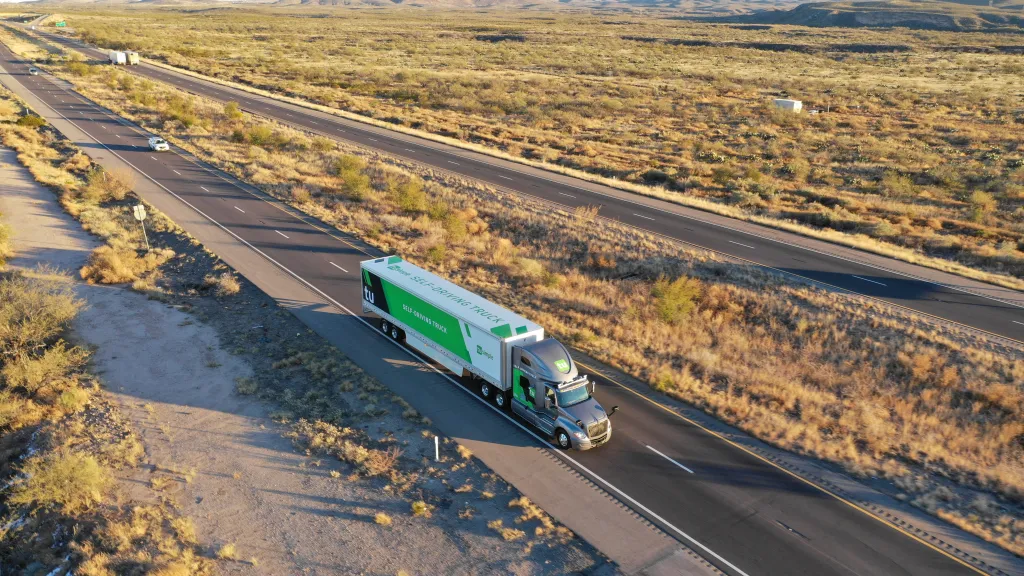Autonomous trucks, also known as self-driving trucks or driverless trucks, represent a transformative innovation poised to revolutionize the logistics and transportation industry. These vehicles use advanced technologies such as artificial intelligence (AI), machine learning, computer vision, and sensors to navigate roads and transport goods without human intervention. The potential implications of autonomous trucks on supply chains are profound, offering benefits in efficiency, safety, sustainability, and operational flexibility. This blog explores the impact of autonomous trucks on supply chains, examining both the opportunities they present and the challenges that must be addressed.
Enhanced Efficiency and Productivity
One of the primary benefits of autonomous trucks is their potential to enhance efficiency and productivity within supply chains:
- 24/7 Operations: Unlike human drivers who are subject to hours-of-service regulations and fatigue, autonomous trucks can operate around the clock, reducing idle time and speeding up delivery schedules.
- Optimized Routing and Logistics: AI-powered algorithms can analyze real-time data on traffic, weather, and road conditions to optimize routing, minimize delivery times, and reduce fuel consumption.
- Improved Fleet Management: Autonomous trucks can be integrated with fleet management systems to enhance coordination, monitor vehicle performance, and streamline maintenance schedules, leading to better asset utilization and cost savings.
Safety and Risk Reduction
Autonomous trucks have the potential to improve safety within supply chains:
- Reduced Accidents: By eliminating human error, which is a leading cause of truck accidents, autonomous trucks can enhance road safety and reduce the risk of collisions, injuries, and fatalities.
- Adaptive Driving: Advanced sensors and AI algorithms allow autonomous trucks to react swiftly to unexpected obstacles or hazards on the road, improving overall driving behavior and minimizing risks.
- Compliance with Regulations: Autonomous trucks can be programmed to adhere strictly to traffic laws and regulations, ensuring consistent compliance and reducing legal risks for logistics companies.
Environmental Impact and Sustainability
Autonomous trucks can contribute to sustainability goals within supply chains:
- Fuel Efficiency: AI-driven driving patterns and optimized routes can lead to reduced fuel consumption and lower greenhouse gas emissions, contributing to environmental sustainability efforts.
- Electric and Alternative Fuels: Autonomous technology can facilitate the adoption of electric and alternative fuel vehicles, further reducing carbon footprints and promoting cleaner transportation solutions.
- Last-Mile Efficiency: Autonomous trucks can optimize last-mile delivery operations, reducing congestion in urban areas and minimizing the environmental impact associated with delivery vehicles.
Workforce and Economic Considerations
The adoption of autonomous trucks will also impact the workforce and broader economic factors:
- Shift in Job Roles: While autonomous trucks may reduce the demand for traditional truck drivers, new job opportunities will emerge in areas such as vehicle monitoring, maintenance, logistics coordination, and AI system management.
- Training and Skills Development: Upskilling and reskilling programs will be essential to prepare the workforce for roles that complement autonomous technologies and ensure a smooth transition within the industry.
- Economic Efficiency: Autonomous trucks have the potential to lower transportation costs, improve supply chain reliability, and support economic growth by enhancing the overall efficiency of logistics operations.
Challenges and Considerations
Despite the promising benefits, several challenges must be addressed for the widespread adoption of autonomous trucks in supply chains:
- Technological Reliability: Ensuring the reliability and safety of autonomous trucking systems under various weather conditions, road environments, and operational scenarios remains a critical challenge.
- Regulatory Frameworks: Developing consistent and robust regulatory frameworks is essential to address liability issues, establish safety standards, and ensure compliance with transportation regulations across different jurisdictions.
- Infrastructure Requirements: Autonomous trucks require adequate infrastructure, including smart roads, communication networks, and charging stations for electric vehicles, to support their deployment and operation effectively.
- Public Perception: Addressing public concerns about safety, job displacement, and privacy associated with autonomous trucks is crucial for gaining acceptance and trust in this emerging technology.
Future Outlook
The integration of autonomous trucks into supply chains represents a transformative shift that promises to enhance efficiency, safety, and sustainability while presenting new challenges for stakeholders. As technology continues to advance and stakeholders collaborate to address regulatory, infrastructural, and societal challenges, autonomous trucks have the potential to reshape the logistics landscape and drive innovation in global supply chains. By leveraging the benefits of AI and autonomous technologies, businesses can prepare for a future where logistics operations are more efficient, resilient, and environmentally responsible than ever before.
By Our Media Team
Our Editorial team comprises of over 15 highly motivated bunch of individuals, who work tirelessly to get the most sought after curated content for our subscribers.




